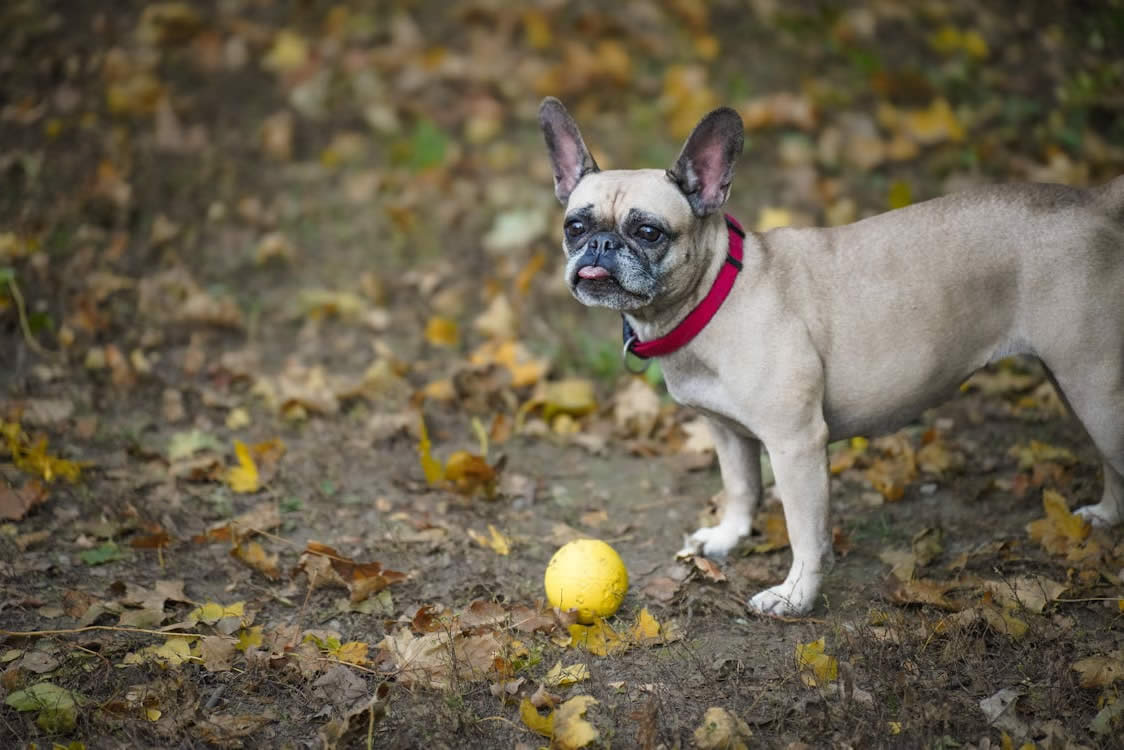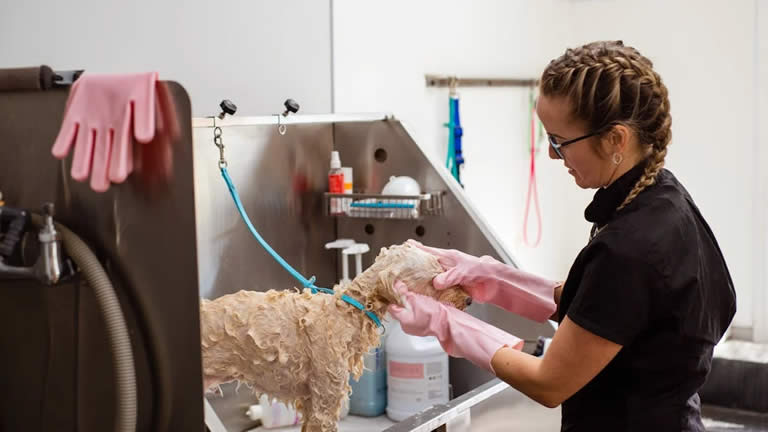
26 Oct How to Choose the Right Dog for Your Lifestyle: Finding the Perfect Match
Adopting a dog is a life-changing decision, one filled with excitement and love. But it’s also a decision that requires careful thought and consideration. The joy of bringing home a furry friend can quickly turn to frustration if the dog you choose doesn’t fit your lifestyle. It’s not just about finding a breed that you think is cute or trendy—it’s about finding a dog whose temperament, energy levels, and needs align with your everyday life.
Here’s how to pick the right dog for your lifestyle, so both you and your new best friend can thrive together.
1. Assess Your Activity Level: Energy Needs Matter
One of the most important factors to consider is how active you are. Are you someone who loves hiking, running, or spending time outdoors? Or do you prefer relaxing at home with a book or a movie? The dog you choose should match your energy level, not the other way around.

Active Lifestyle: Get an Athletic Dog
If you’re a runner, hiker, or someone who enjoys long walks, an active breed will be your best companion. Dogs like Border Collies, Australian Shepherds, and Retrievers have high energy levels and thrive when they have plenty of physical and mental stimulation. They’ll love joining you on adventures and will need regular exercise to stay happy.
But if you’re someone who prefers spending weekends on the couch, an athletic dog might not be the right fit. These dogs need consistent exercise, and if they don’t get it, they can become bored, anxious, or destructive.

Sedentary or Low-Activity Lifestyle: Choose a Low-Energy Breed
If your idea of a great weekend is lounging at home, then consider a low-energy dog breed. Dogs like Bulldogs, Basset Hounds, and Shih Tzus tend to be more relaxed and content with short daily walks. These dogs don’t require intense exercise and are happy to curl up beside you while you watch TV or read.
The bottom line? Don’t adopt a high-energy dog if you know you’re not up for the long runs or daily adventures they need. Match your dog’s energy needs to your activity level, and you’ll have a much happier, healthier relationship.
2. Space Considerations: How Big Is Your Home?
Another crucial factor is the size of your living space. A big dog in a small apartment can quickly lead to cramped quarters and frustrated pets (and owners). Think about the size of your home and whether it’s
suitable for the dog you’re considering.
Small Homes or Apartments: Choose a Compact Dog
If you live in an apartment or a house with limited space, you’ll want to look for breeds that are comfortable in smaller environments. Dogs like Dachshunds, French Bulldogs, and Pugs don’t need much space to be happy, and they tend to be quieter, making them better suited for apartment living.
Even large apartments aren’t a free pass for big, energetic dogs if you’re not prepared to give them the exercise they need outside. You can have a big dog in a small space, but only if you’re committed to meeting their physical needs with regular walks and playtime.
Large Homes with Yards: Big Dogs Thrive Here
If you have a spacious home with a yard, your options open up to larger breeds. Dogs like Golden Retrievers, Labradors, and German Shepherds will love the extra space to stretch out and roam. However, with bigger dogs comes greater responsibility—they still need exercise, training, and attention.
3. Training Commitment: Big Dog, Big Responsibilities
Training is crucial for all dogs, but with large breeds, it becomes even more essential. Larger dogs can easily overpower you if they aren’t trained to walk on a leash, and poor behavior can quickly become a safety concern.
Large Breeds: Be Prepared for Training
If you’re thinking about getting a large dog, like a Great Dane, Bernese Mountain Dog, or Rottweiler, you need to be prepared to invest time in training. These dogs require discipline and consistent leadership. Without it, they can develop bad habits like pulling on the leash, jumping up on people, or guarding food or toys. A well-trained large dog is a joy to be around, but it takes effort and patience.
Small Breeds: Train Them Too!
It’s a common misconception that small dogs don’t need as much training. However, just because a Chihuahua or a Yorkie is tiny doesn’t mean they should be allowed to misbehave. Small dogs can develop “small dog syndrome,” where they think they rule the house. Training is just as important for small breeds as it is for large ones to prevent behavior issues like barking, biting, or anxiety.
4. Consider Your Family: Are Kids or Other Pets in the Mix?
If you have children or other pets, you’ll need to think about how a new dog will fit into your existing family dynamic.
Dogs and Kids: Gentle Breeds Are Best
Not all dog breeds are great with kids, and that’s okay. Some dogs, particularly herding breeds, may be too energetic or nippy for small children, while others are naturally gentle and patient. Breeds like Golden Retrievers, Beagles, and Cavaliers tend to be good family dogs because they’re affectionate, playful, and tolerant of children’s unpredictability.
It’s also important to teach your children how to interact with dogs safely. Even the most gentle dog can become scared or defensive if a child pulls their ears or tail, so supervision and education are key.
Dogs and Other Pets: Compatibility Counts
If you already have other pets, like cats or other dogs, consider how well your new dog will fit in. Some breeds, like Basset Hounds or Shetland Sheepdogs, are known for being good with other animals, while others, such as terriers, may have a high prey drive and chase smaller pets like cats.
5. Grooming Needs: High-Maintenance or Low-Maintenance?

Grooming is another factor that can significantly affect your day-to-day life with your dog. Some dogs require regular trips to the groomer, while others are low-maintenance when it comes to coat care.
Low-Maintenance Breeds
If you don’t want to spend hours brushing, bathing, or trimming, consider a dog with low grooming needs. Breeds like Beagles, Boxers, and short-haired Chihuahuas have minimal grooming requirements and are relatively easy to care for in this aspect.
High-Maintenance Breeds
If you’re up for the challenge, breeds like Poodles, Shih Tzus, or Afghan Hounds require regular grooming to keep their coats healthy and free of tangles. This means either frequent trips to the groomer or a commitment to learning how to groom at home.
6. Health Considerations: Be Aware of Breed-Specific Issues

Different breeds come with different health concerns, and it’s important to be aware of them before choosing your dog. Some breeds are prone to genetic conditions that may require special care, while others are generally healthy but may need regular vet visits to monitor their well-being.
For example:
- Bulldogs are prone to respiratory issues due to their flat faces.
- Labradors and Retrievers can have joint issues like hip dysplasia.
- Small breeds like Pomeranians or Yorkies may be prone to dental problems.
Be sure to research the breed you’re considering and factor in the potential long-term health care needs and costs.
Conclusion: The Right Dog for Your Life
Choosing the right dog isn’t just about how they look or the breed that’s trending. It’s about finding a companion who fits seamlessly into your life—whether you’re an outdoor adventurer, a city dweller in a small apartment, or a busy parent juggling kids and pets. By considering your activity level, space, training commitment, family situation, grooming preferences, and potential health concerns, you can find the dog that’s truly the best fit for your lifestyle.
Remember, adopting a dog is a lifelong commitment. The more thought you put into finding the right match, the happier both you and your new furry friend will be. Take the time to research, assess your lifestyle, and consider your options. When you find that perfect match, your life will be richer, more joyful, and filled with unconditional love.




